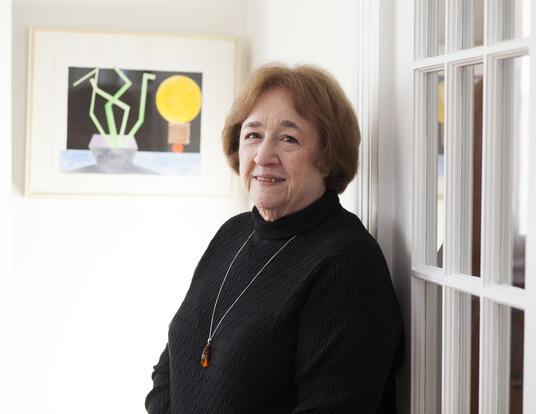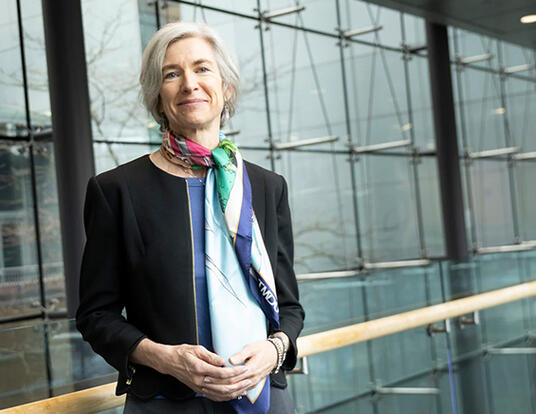The research of Leah Aronowsky, a historian of science, often revolves around one question: “How do scientists obtain knowledge of environmental phenomena that unfold on the scale of the entire planet?” Aronowsky is currently a Mellon Postdoctoral Fellow in Environmental Humanities based at the University of Illinois at Urbana-Champaign after having earned a Harvard PhD in the history of science earlier this year. Her dissertation was on the biosphere—a concept, she says, that “dissolves the boundary between organisms and environments to construe the whole of planetary nature in terms of chemical cycles and flows.”
Unlike another recent Harvard PhD recipient, Christopher Horvat, Aronowsky doesn’t focus too much on present-day science, nor does she pay specific attention, for instance, to the size of ice floes or the thinning Arctic ice sheets. “But I’m trying to tell the history behind the work that scientists like Chris do,” she says. “And I’m fascinated by the process through which researchers gather data that can support claims about global phenomena.”
As an undergraduate at Wesleyan University, Aronowsky became interested in the history of medicine and assumed she would continue that line of inquiry in graduate school. But during her coursework at Harvard, she was drawn to large-scale environmental questions, which led her to the biosphere, perhaps most simply described as encompassing all places on Earth where life exists. Aronowsky, however, prefers a more dynamic definition, which recognizes that the various life forms are, in some way, connected to each other and to the planet as a whole; life affects the planet just as the planet affects life. Oxygen, for example, makes up a significant portion of the atmosphere because organisms produce it. Oxygen’s presence in the atmosphere, in turn, sustains other organisms that are dependent upon that molecule for survival.
It is perhaps not surprising that Aronowsky, as a historian, has a special interest in organisms of the human variety and the role they’ve collectively played in shaping the environment—for better or worse. A recent report by the United Nations Intergovernmental Panel on Climate Change, which cited a clear-cut human influence on the climate system, is, according to Aronowsky, “one of many documents that speaks to a question currently plaguing contemporary science: To what extent have humans impacted the Earth’s processes, and how can we document those impacts?”
One answer, she says, may lay in a newly-proposed geological epoch called the “Anthropocene”—a term introduced in 2000 by the Nobel Prize–winning atmospheric chemist Paul Crutzen and the biologist Eugene Stoermer, indicating that the environmental effects of human activity may be imprinted on a global scale in the Earth’s rocky strata, ice layers, or atmosphere. There is a diversity of opinion within the scientific community as to whether the Anthropocene constitutes a genuine epoch and, if so, where the “golden spike” (or stratigraphic signal) lies. Crutzen and Stoermer suggested a start date of around 1780, marking the onset of the Industrial Revolution. Some suggest the beginning of the nuclear age in 1945, while others say none of the above.
Meanwhile, there is heated debate among social scientists regarding the value of the Anthropocene as an idea. Aronowsky approaches the issue cautiously. The discussion has become laden with politics, partly because not all of the world’s people contribute equally to environmental change or degradation. Still, she says, “anything that gets us to talk about the global climate is good.” And she’ll be there to document that talk and put it into proper perspective—historical, of course.
Photo by Christian Fleury





